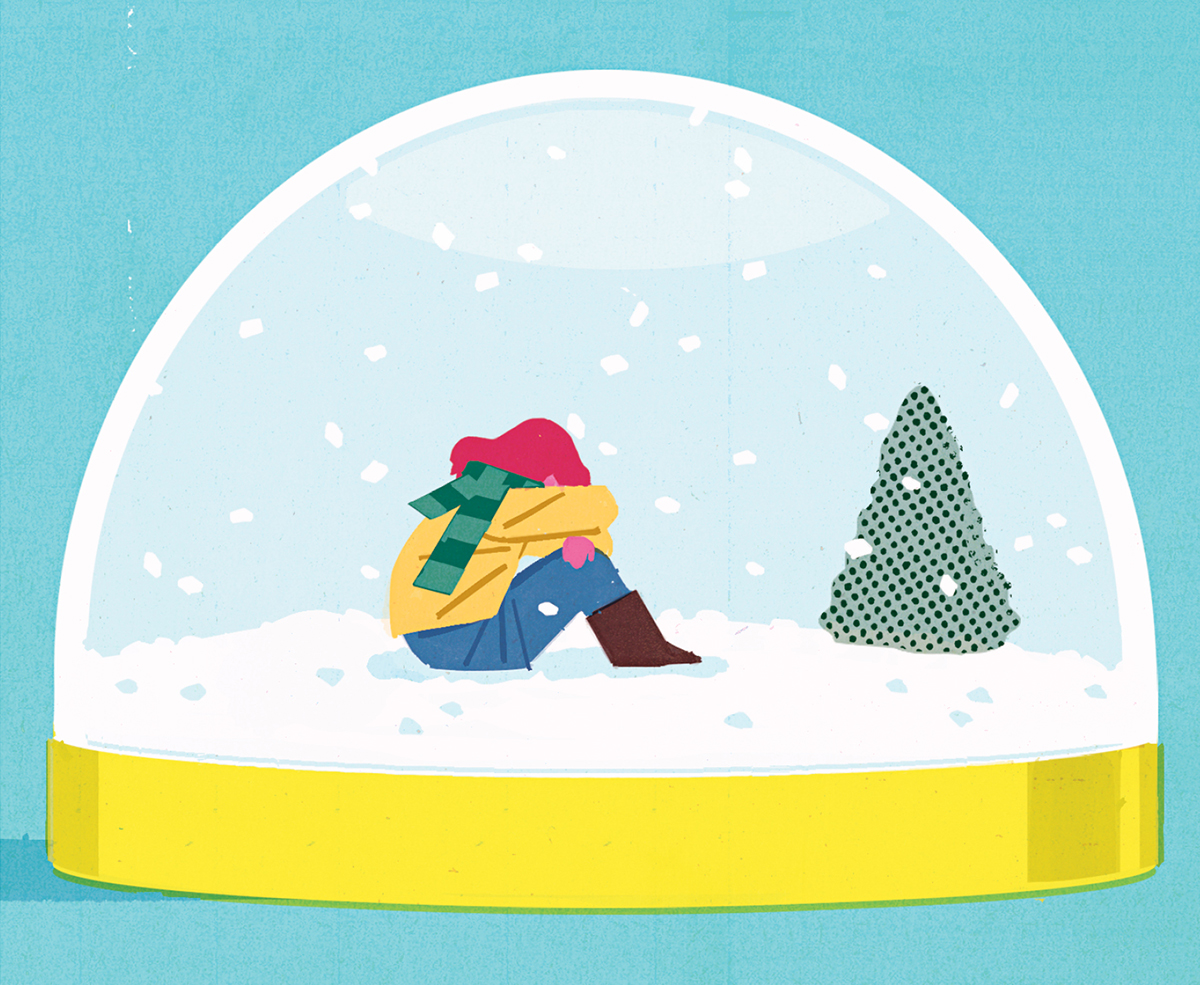Winter is just around the corner and the end of daylight saving time means the days feel shorter and nights longer. Most of us only have to deal with the physical change of layering up and cranking up the heat, but some also have to deal with the emotional changes. Add to that, a pandemic that has turned our world upside down and caused significant lifestyle changes, such as increased isolation and reduced availability of in-person support systems.
What Is SAD?
Seasonal affective disorder is characterized as a depressive disorder caused by the onset of certain seasons. Experts believe shortened days and less daylight set off a chemical change in the brain that leads to symptoms of depression in people with the disorder.
Common symptoms include:
- Excessive sleep and daytime drowsiness
- Feelings of sadness, guilt and hopelessness
- Loss of interest and pleasure in activities normally enjoyed
- Anxiety, grouchiness and fatigue
- Difficulty concentrating
- Increased appetite and weight gain
SAD & the Pandemic
The unknown longevity of the pandemic has brought additional stresses and concerns related to continued social distancing/isolation, job loss, economic uncertainty, and health. As a result, no one is immune to experiencing symptoms of depression, heightened anxiety, and even feelings of hopelessness and despair at this distressing time.
Here are some steps you can take from the comfort of your own home before seasonal depression sets in:
Connect Virtually w/ Friends & Family
Catch up with loved one virtually. Even talking on the phone with someone can be helpful. Schedule a virtual happy hour or bring your friends and/or family together to participate in a game night, movie night, and other activities through a video conferencing app. It’s okay to ask for help, too. Talking with people you trust about your concerns and how you are managing them can help you build mental and emotional strength.
Prioritize Sleep & Healthy Eating
Get a full and good night’s sleep. Lack of sleep is associated with increased risk for depression and other negative mental health effects. Mental and emotional resilience improves when you get a healthy amount of sleep. In addition, pay attention to your diet and try to eat as healthy as you can. Diets high in processed foods and refined sugars have been linked to worsening of mood disorders, including depression.
Try Light Therapy
If you notice that seasonal changes have caused trouble sleeping, a poor appetite, or anxiety – try using a light box. The lack of sunlight exposure in the winter can be a cause of seasonal affective disorder. A minimum of 30 minutes of light box usage is recommended each day, preferably in the morning. Aim for a light box that is rated for 10,000 lux and place the light source within two feet of your face when in use. Let in as much natural light as you can during the day or sit by a window to combat the lack of sunlight.
Stay Active – Inside & Outside
Get as much exercise as possible. Any length and type of exercise can help to boost your mood and reduce depression and anxiety. Try to form and maintain the habit of working out on a regular basis.
Take a Break From Your Smartphone or Social Media
Constant exposure to the news and/or your social media feeds can amplify anxiety and stress. While it’s important to stay informed, breaks are necessary. Try disabling social media apps or limiting your news consumption to help manage stress.
If you need additional support or treatment, I strongly encourage you to seek professional mental healthcare.
-Paulina Le
Health Fitness Specialist
Sources
- https://www.mhealth.org/blog/2020/nov-2020/covid-19-and-winter-seasonal-mental-health-coping-tips
- https://www.hopkinsmedicine.org/health/conditions-and-diseases/seasonal-affective-disorder
